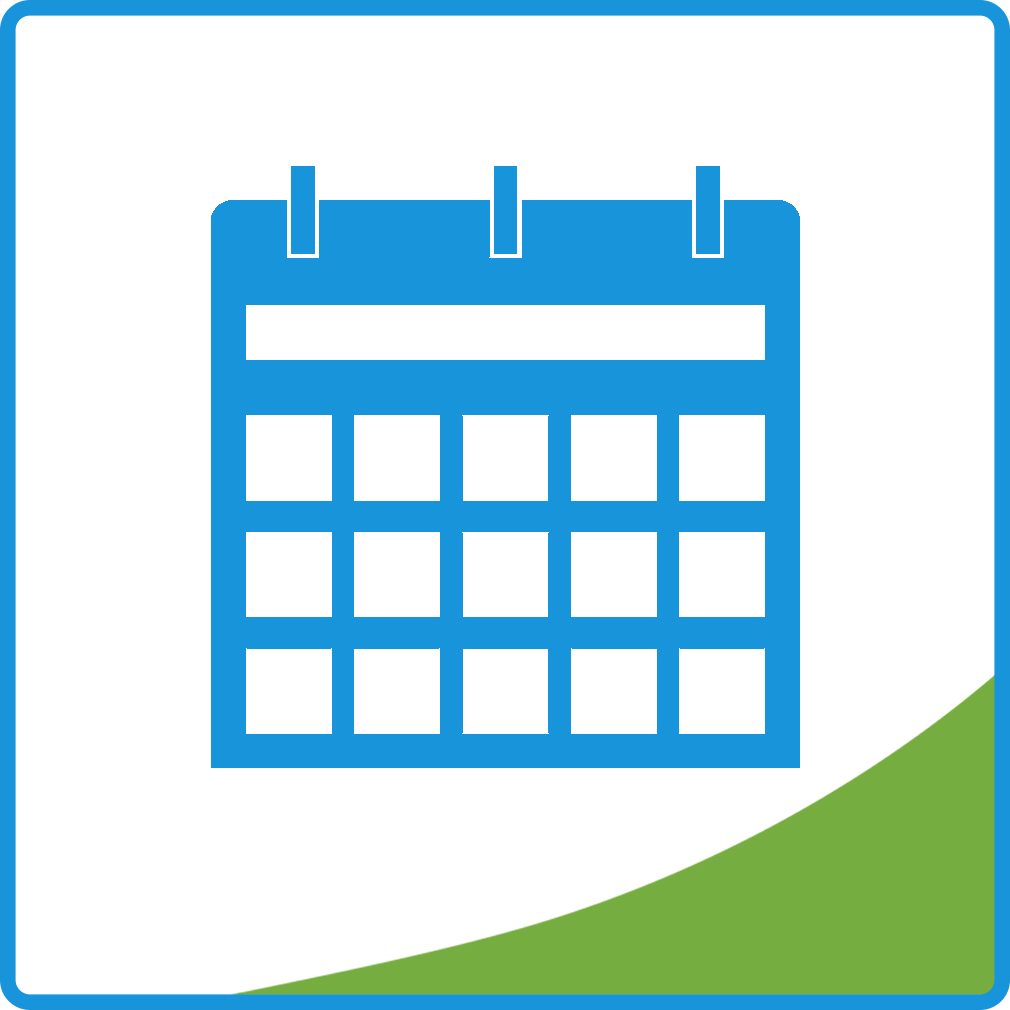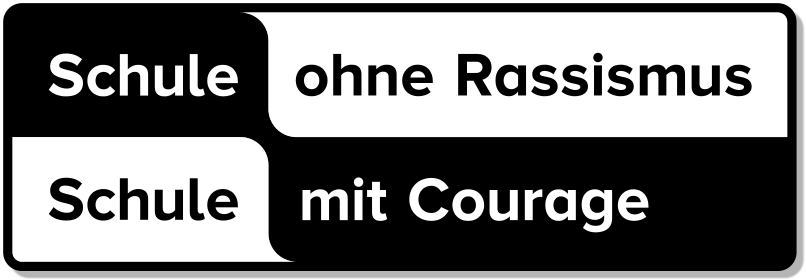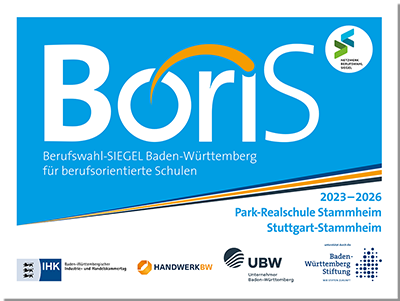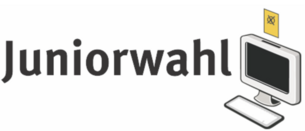Terms of Use for the Use of School-Owned Information and Communication Technology at Park Realschule Stammheim
---
1. General Provisions
These regulations apply to the use of school-owned information and communication technology (ICT, e.g. mobile devices, learning platforms, educational software) by students at the above-mentioned school for educational purposes.
The use of ICT is permitted only in compliance with these terms of use.
---
2. Rules for Borrowing and Use at School
2.1 Issuing and Returning Mobile Devices and Other ICT Equipment
Mobile devices and other ICT equipment provided for borrowing or classroom use will generally be issued to students by the person designated by the school management. Receipt of the ICT equipment in the case of a loan must be confirmed in writing (see appendix).
Upon termination of school use, and in other cases specified in these terms of use, the ICT equipment provided (e.g. mobile device) must be returned to the responsible person.
---
2.2 Passwords
Students will receive individual user IDs and passwords from the school, which allow them to log in to ICT devices. Passwords, which are only known to the students, should (where possible) be at least 8 characters long and not easily guessable. Passwords must be kept confidential and changed immediately if there is any risk of unauthorized access.
Tips for secure passwords are provided separately.
Before first use, individual user accounts may need to be activated.
The use of another person’s account is strictly prohibited. Anyone who becomes aware of another person’s password is obliged to report this to the responsible teacher or designated person.
Students must log out after completing their work.
---
2.3 Permitted Use, Supervision
The decision on which specific services and learning resources may be used lies with the responsible teacher. The same applies to the termination of use.
The ICT equipment provided may only be used by students and only for educational purposes. Educational uses include:
* Use of digital learning platforms and educational software as directed by the teacher,
* Electronic communication with teachers and other students on school-related content,
* Other uses as determined by the teacher.
Private use is not permitted. Granting use to any other person, including family members of students, is prohibited. Use for commercial purposes and resale is not permitted.
No contractual agreements may be concluded in the name of the school, nor may paid services on the internet be used.
Outside of lessons, teachers may grant permission for use of ICT, e.g. for homework.
If a mobile device is integrated into a private infrastructure, that infrastructure must be protected with up-to-date antivirus software and a firewall.
Legal provisions, particularly criminal law, copyright law, and youth protection law, must be observed. In particular, it is forbidden to access or distribute pornographic, violence-glorifying, or racist content. If such content is accessed inadvertently, the application must be closed, and the teacher informed.
Internet access, email, and other distribution interfaces (USB sticks, hard drives, etc.) may not be used to disseminate information that could harm the reputation of staff, students, or the state.
The photo, audio, and video functionality may only be used in class if the following conditions are met:
* Photos, videos, and audio recordings of identifiable persons may only be taken with the teacher’s permission and the written consent of those affected.
* Recordings may only be used for educational purposes. Recordings must be deleted upon request by the teacher.
* Recordings made for educational purposes may not be shown to third parties, shared with third parties, or published online, unless consent has been obtained from all affected persons or their guardians.
* Audio and video recordings of lessons are prohibited unless authorized by the teacher.
Unauthorized copying of software or use of prohibited content may result in civil or criminal liability.
Teachers, in the exercise of their duty of supervision, are entitled to monitor compliance with these terms of use, e.g. by reviewing browser and app histories.
The school’s digital platforms (Moodle, Untis, email) are official school communication and education tools.
Users are obliged to regularly check whether important information has been provided via the school email service.
Additional learning content is provided via Moodle. Students are obliged to process the content made available as part of lessons. If this is not technically possible, students and their guardians must contact the class teacher.
---
2.4 Data Protection and Data Security
Teachers are entitled to monitor data traffic in the exercise of their duty of supervision. In addition, automated logging is performed by the operating system (e.g. use and installation of software, user logins/logouts, updates/upgrades, system events such as crashes, start and stop of services and applications) and the internet browser (especially visited websites). Data will be deleted by the school no later than upon termination of school use, unless there are grounds to suspect misuse of ICT.
Teachers may exercise their right of inspection in cases of suspected misuse and through random spot checks, in order to ensure compliance with these terms of use. In doing so, system and browser log files may be analyzed. Students may not delete browser or app histories, nor any logged data. Private browsing may only be used if authorized or instructed by the teacher.
The email service and Moodle platform are hosted on data protection–compliant servers provided by the State of Baden-Württemberg and the City of Stuttgart.
A contract for commissioned data storage has been concluded with the operator of the timetable program Web-Untis.
Detailed privacy policies can be found on the individual platforms.
---
2.5 Changes to Hardware and Software
Alterations to the installation and configuration of ICT, tampering with hardware and software, altering access rights, and copying or installing programs are strictly prohibited. External devices (e.g. peripherals such as external drives, USB sticks, scanners, and digital cameras) may only be connected with the teacher’s consent.
Unnecessary data traffic from downloading and sending large files (e.g. graphics) should be avoided. Large files should be compressed before transfer. Unauthorized large files stored in the workspace may be deleted by the teacher.
---
2.6 Protection of Devices, Liability
Students are responsible for ICT equipment assigned to them.
Hardware and software must be used as instructed by the teacher. Malfunctions or damage must be reported immediately to the designated person. Anyone who negligently or intentionally causes damage beyond normal wear and tear as defined in these terms of use is liable for compensation.
ICT equipment is particularly vulnerable to external damage such as dirt or liquids. Eating and drinking while using the equipment is therefore prohibited.
---
2.7 Use of School WLAN
Wireless access to the school network/internet must be appropriate and moderate. It is particularly prohibited to:
* Use personal devices in the school WLAN,
* Use multiple devices without teacher approval,
* Disrupt network operations through excessive or indiscriminate data distribution,
* Unreasonably impair the data traffic of other users,
* Eavesdrop on or log the data transmissions of others, gain unauthorized access to data, or access ICT systems without authorization,
* Use false identities,
* Manipulate information on the network.
---
2.8 Use of Information from the Internet
Internet access may only be used for educational purposes. Downloading applications is only permitted with teacher approval.
The state or its employees are not responsible for the content of third-party services accessed online, even when accessed via school ICT.
When processing third-party content from the internet, copyright and usage rights must be respected.
---
2.9 Sending Information to the Internet
The use of private IDs (e.g. Google ID, Apple ID) is not permitted.
The IDs assigned with device issuance may only be used in connection with school lessons.
Communication via internet services (email, chat, newsgroups, social networks, etc.) outside of approved use is prohibited.
The overriding principle is respect for the personal rights of others. Discrimination, personal attacks, insinuations, and defamation may result not only in revocation of access rights but also in civil or criminal proceedings.
---
3. Final Provisions
At the start of their use of school ICT, students will be instructed on these terms of use. By signing (see appendix), they confirm their acceptance.
This instruction will be recorded in the school logbook and repeated annually at the beginning of the school year.
Violations of these terms of use may result in revocation of access rights, possible legal consequences, and the immediate obligation to return borrowed ICT equipment.







